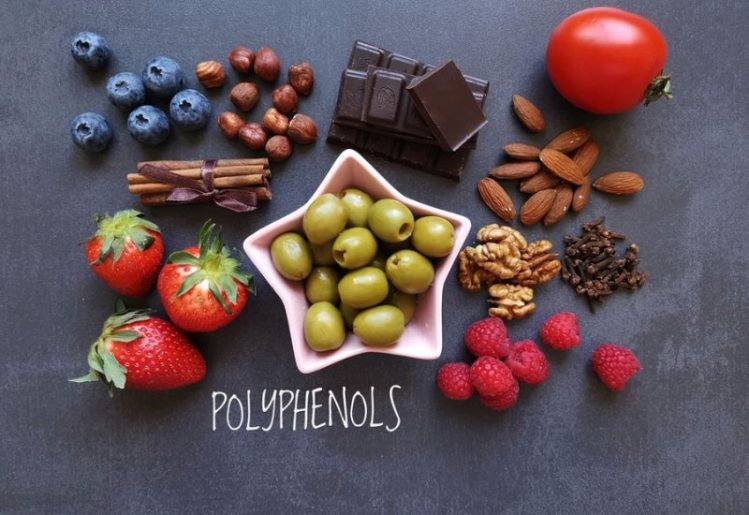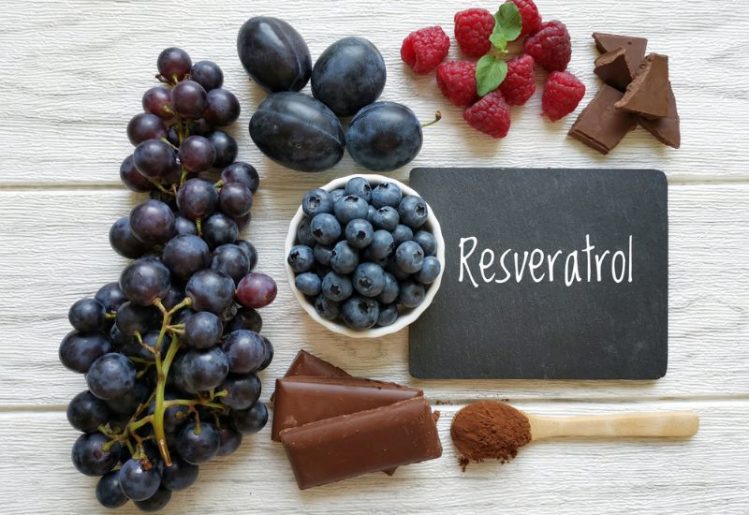Polyphenols Reduce Inflammation, Offering a Possible Option to Dangerous Drugs
Medical researchers are unlocking new data about how polyphenols reduce inflammation in the body. How can you use this information to boost your health?
What Are Polyphenols?
 Polyphenols are a powerful family of compounds that are found naturally in plant foods, including a variety of fruits, vegetables, herbs, spices and even dark chocolate and red wine. These compounds are known for their beneficial antioxidant properties, making them helpful in mitigating the dangers of free radicals. By neutralizing the free radicals in your body, you will consequently reduce the threat of a number of diseases and illnesses as a result of lower inflammation levels.
Polyphenols are a powerful family of compounds that are found naturally in plant foods, including a variety of fruits, vegetables, herbs, spices and even dark chocolate and red wine. These compounds are known for their beneficial antioxidant properties, making them helpful in mitigating the dangers of free radicals. By neutralizing the free radicals in your body, you will consequently reduce the threat of a number of diseases and illnesses as a result of lower inflammation levels.
Polyphenols fall into four major categories: flavonoids, polyphenolic amides, phenolic acids and miscellaneous polyphenols. As scientists learn more about the composition and function of polyphenols, it is becoming more evident that their intake can help to reduce inflammation in the body and improve your overall health as a result.
New Study Details How Polyphenols Reduce Inflammation
A new study out of the Research Group on Biomarkers and Nutritional and Food Metabolomics of the Faculty of Pharmacy and Food Sciences of the University of Barcelona and the CIBER on Fragility and Healthy Ageing (CIBERFES) is helping experts to understand how the nutrients we take in can help to prevent inflammation in older adults. The results of the study found that polyphenols work to change the composition of the intestinal microbiome while triggering the production of the indole 3-propionic acid (IPA). These processes work to boost the health of the intestinal wall, helping to combat some of the diseases that tend to pop up as the body begins to age.
The researchers were able to deduce that diets rich in polyphenols lead to an increase in the blood IPA levels while simultaneously decreasing levels of inflammation. In short, a diet rich in this compound could be instrumental in both delaying or completely preventing a variety of chronic diseases that typically present in older populations.
The anti-inflammatory, antioxidant and immunomodulant properties of polyphenols are being touted as having a great potential to be used in both the prevention and treatment of multiple diseases and illnesses. This is primarily because inflammation is the trigger for some of the most worrisome chronic diseases. By mitigating the cycle of inflammation, polyphenols have demonstrated promising results for individuals wanting to reduce the chances of developing potentially harmful medical conditions.
Dangers of Medications Used to Treat Inflammation
In the past, physicians were quick to recommend the use of certain types of drugs to treat inflammation in the body. The first class is what is known as non-steroidal anti-inflammatory drugs (NSAIDs). This includes what people most commonly refer to as aspirin and ibuprofen. NSAIDs work by disrupting the metabolic pathways that pump out the mediators that cause inflammation.
The second class of drugs used to treat inflammation are steroidal anti-inflammatory drugs such as prednisone and betamethasone. This class differs from NSAIDs because steroids block enzymes at the root of the reaction by providing both anti-inflammatory and immunosuppressive functions.
While the use of both types of drugs can be beneficial in the short-term, researchers are now discovering how the long-term use of these drugs can trigger a host of adverse effects. This includes a higher incidence of heart attacks, stroke and the development of cancer when used over the long-term.
Because of the dangers inherently present in some of the most common medications used to treat inflammation, more and more physicians are advising their patients to look into the use of natural remedies such as polyphenols. Not only are polyphenols inherently good for you but you also do not have to worry about potentially adverse side effects.
How to Boost Your Intake of Polyphenols
The good news is that it may be easier than you think to boost your intake of polyphenols. You can start with making foods that are rich in this compound a cornerstone of your diet. Polyphenols are found in abundance in dark chocolate, red wine, tea and various types of berries. Other foods that provide a significant amount of polyphenols include grapes, plums, apples, pears and most citrus fruits.
If you are a vegetable fan, you will be happy to learn that polyphenols are present in asparagus, artichokes, spinach, carrots and potatoes. Lastly, you will enjoy this compound if you increase your intake of legumes, nuts, seeds, grains, herbs and spices.
 While it seems easy enough to ensure that you are taking in enough polyphenols through food alone, you can enjoy more assurance if you also take a supplement that supplies this crucial plant compound. A supplement such as Resverchron has been specially formulated to ensure optimal delivery of these compounds. In addition to providing a number of vitamins and minerals, Resverchron also contains the powerful polyphenol resveratrol.
While it seems easy enough to ensure that you are taking in enough polyphenols through food alone, you can enjoy more assurance if you also take a supplement that supplies this crucial plant compound. A supplement such as Resverchron has been specially formulated to ensure optimal delivery of these compounds. In addition to providing a number of vitamins and minerals, Resverchron also contains the powerful polyphenol resveratrol.
Do not let this knowledge about the power of polyphenols go to waste. By being intentional about taking in enough of these compounds, you will be doing your overall health and wellness a great favor.




